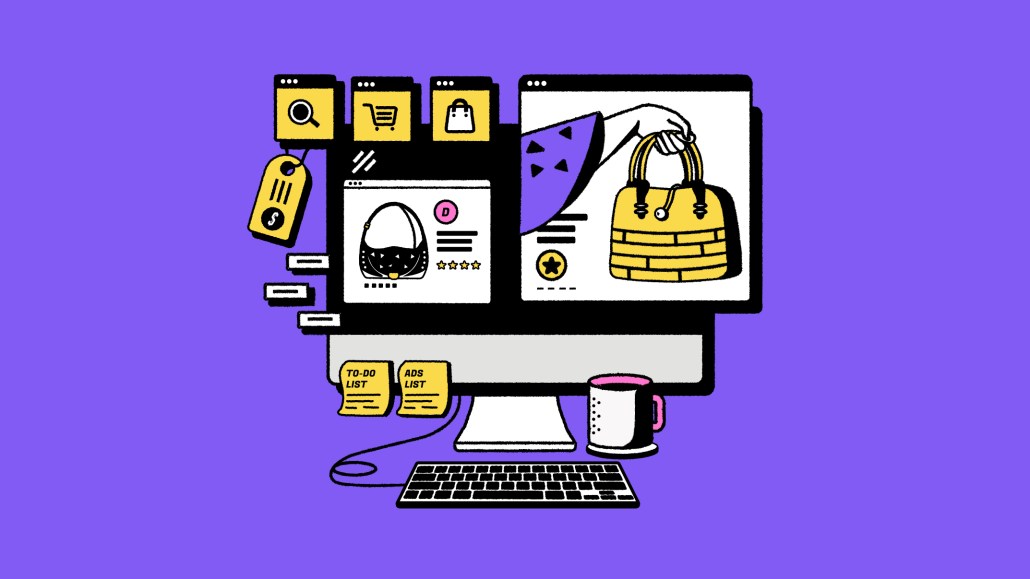As digital ad landscape crowds and pandemic looms, DTC storage brand looks to in-person experiential marketing

Direct-to-consumer storage brand MakeSpace is putting its stake in the ground, experimenting with experiential marketing to expand its retail footprint. It’s starting with The MakeSpace Store in New York City’s Flatiron district, which launched last month. The Instagramable pop-up offers retail, in-store appointments and meditation space for consumers.
It’s a move the brand made to stand out amid an increasingly crowded digital ad ecosystem — as more advertisers upped their digital ad budgets and other players joined the space and drove up costs. With the experiential space, MakeSpace is looking to be a first-mover back into experiential marketing.
It’s odd timing, given the Covid-19 pandemic still looms and vaccine distribution has yet to reach the majority of the U.S. population. That being said, the space was designed with pandemic precautions in mind and in adherence to Covid safety guidelines, including face mask requirements, social distancing and appointments limited to one customer per hour, according to Miriam Kendall, svp of marketing at MakeSpace.
“A lot of people think we’re crazy,” said Kendall, adding that MakeSpace found that customers wanted an in-person experience based on their feedback. “Why would you open a physical store when retail is dead? And why would you go to New York City when cities are dead? Why would you do it in a global pandemic if you’re going to do it at all? Really? But we think differently.”
MakeSpace worked with the NYC-based design studio Huxhux to develop the neon green, Instagramable pop-up space which was “designed specifically to be responsive to pandemic conditions,” according to Huxhux founder Justin Huxol.
While Huxol acknowledged that research is still ongoing for buildings to be pandemic-safe, the company “deployed some basic, yet effective, design tactics which became the core organizing concepts for this project.”
The project took about six weeks to complete and was met with positive reactions — so much so that the company is weighing a larger retail footprint in other major markets.
The DTC storage brand didn’t originally set out to become an Instagrammable pop-up shop. However, with the lockdown and work-from-home orders, more consumers are turning to online shopping.
That means marketers are trailing behind them and digital spaces like Google search, a major player in MakeSpace’s digital ad ecosystem, are becoming more crowded and more expensive.
“It hasn’t changed our strategy, except being more aware of the competition [and] other people competing for the same ad space,” Kendall said.
This time last year, events were being canceled and delayed, devastating experiential marketing businesses, per Digiday’s previous reports. But as Covid vaccine numbers continue to climb and more consumers begin to venture outside, MakeSpace may be ahead of the game.
Lena Petersen serves as chief brand officer at MediaLink, a consulting firm with experience translating events to the virtual world, including at the digital Consumer Electronics Show this year.
According to Petersen, MakeSpace’s move makes sense and she predicts it’s part of the first wave as experiential marketing returns post-pandemic.
“People want to touch and feel even with masks on,” Petersen said. “I don’t think there’s any desire to forgo the live [experience].”
Experiential marketing was on the rise before the pandemic brought it to a screeching halt, Petersen said. But with vaccine rollout expected to increase exponentially by Q4 of this year, the CBO expects the industry will be back in business.
In the pandemic, brands leaned into digital activations. Last fall, Walmart moved to allocate more ad dollars to experiential marketing to pitch Walmart+. And at this year’s Super Bowl, Verizon leaned into Fortnite and digital activations. As we come out of Covid, expect to see technology and virtual experiences built into in-person events, per Petersen.
“If you don’t have some kind of engaging activity, you’re not going to have a strong event,” Petersen said. “The thing about experiential is [that’s] by design.”
Access exclusive marketing insights and analysis from Digiday. Apply to join the Digiday Research Panel.
More in Marketing

WTF are tokens?
When someone sends a prompt or receives a response, the system breaks language into small segments. These fragments are tokens.

AI is changing how retailers select tech partners
The quick rise of artificial intelligence-powered tools has reshaped retailers’ process of selecting technology partners for anything from marketing to supply chain to merchandising.

YouTube’s upmarket TV push still runs on mid-funnel DNA
YouTube is balancing wanting to be premium TV, the short-form powerhouse and a creator economy engine all at once.








